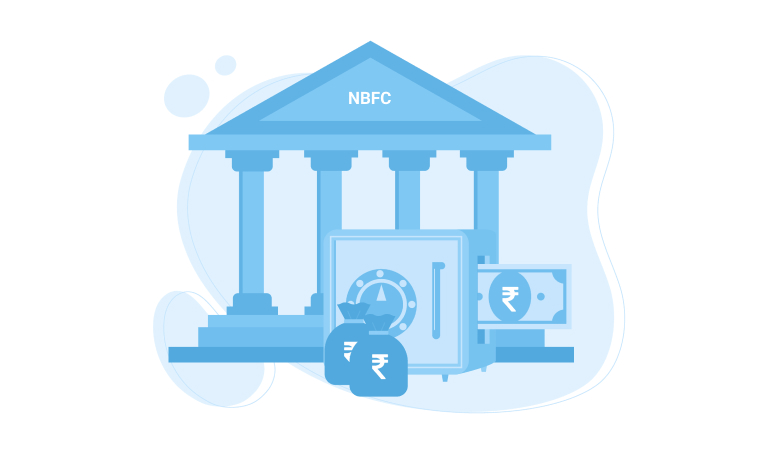Starting a business in India has become significantly more streamlined over the years, thanks to regulatory reforms like the Companies Act 2013. Among the various types of companies, a Private Limited Company is one of the most popular and preferred structures for entrepreneurs due to its benefits such as limited liability, separate legal identity, and ease of operations. In this blog, we will discuss the process of incorporating a Private Limited Company under the Companies Act 2013, and provide insights into Private Limited Company Registration in India, Pvt Ltd Company Registration in India, and more.
What is a Private Limited Company?
A Private Limited Company (Pvt Ltd) is a business entity that is privately held, with the liability of its shareholders limited to the amount of capital they have invested in the company. The key features of a Private Limited Company include:
- Limited Liability: Shareholders’ liability is limited to the amount unpaid on their shares. This means personal assets are protected in case of business failure.
- Separate Legal Entity: A Pvt Ltd company is legally distinct from its shareholders, meaning it can enter into contracts, own property, and sue or be sued in its own name.
- Restricted Share Transfer: Shares of a private limited company cannot be traded on a public stock exchange, and their transfer is limited to specific rules.
- Minimum Shareholders and Directors: A private limited company can be formed with just two shareholders and two directors, with a maximum of 200 shareholders.
Why Choose a Private Limited Company for Your Business?
- Credibility: Having a Private Limited Company Registration in India boosts the credibility of your business, making it easier to attract investors, raise capital, and enter into partnerships.
- Limited Liability Protection: Unlike sole proprietorships and partnerships, the shareholders’ personal assets are not at risk in the event of the company’s debts or liabilities.
- Tax Benefits: A Pvt Ltd company is eligible for various tax exemptions and deductions under the Income Tax Act, which helps reduce the overall tax burden.
- Ease of Fundraising: A Pvt Ltd company can raise capital through the issuance of shares to investors, which is not possible in other business structures like a partnership.
Incorporation of a Private Limited Company Under the Companies Act 2013
The Companies Act 2013 governs the incorporation and operation of companies in India. The process of incorporating a Private Limited Company involves several legal steps to ensure that the company is established as per the provisions of this Act. Here’s a step-by-step guide on how to register a company in India:
Step 1: Choose a Suitable Name for Your Company
The first step is to select a unique name for your Private Limited Company that complies with the guidelines set by the Ministry of Corporate Affairs (MCA). The name must not be identical to an existing company, nor should it infringe upon any trademarks. The name should also reflect the company’s business objectives.
Step 2: Obtain Digital Signature Certificate (DSC)
All documents related to Company Registration in India need to be signed digitally. Therefore, the directors and shareholders of the company must obtain a Digital Signature Certificate (DSC), which is issued by government-authorized certifying agencies.
Step 3: Apply for Director Identification Number (DIN)
The next step is to obtain a Director Identification Number (DIN) for all proposed directors of the company. DIN is a unique number issued by the Ministry of Corporate Affairs, which is mandatory for anyone wishing to act as a director in an Indian company.
Step 4: Draft the Memorandum and Articles of Association (MOA & AOA)
The Memorandum of Association (MOA) defines the company’s objectives, while the Articles of Association (AOA) lays down the rules and regulations for its internal management. These documents must be drafted and signed by the directors and shareholders.
Step 5: Filing the Incorporation Application
Once the MOA and AOA are ready, the incorporation application is filed with the Ministry of Corporate Affairs (MCA) through the MCA portal. This is done by submitting the necessary forms, including SPICe+ (Simplified Proforma for Incorporating Company Electronically), which covers multiple services like name reservation, incorporation, and PAN and TAN applications.
Step 6: Issuance of Certificate of Incorporation
Once the application is verified and approved, the Registrar of Companies (RoC) will issue a Certificate of Incorporation, confirming the legal existence of the company.
Key Documents Required for Private Limited Company Registration
To register a private limited company, certain documents must be submitted, including:
- Proof of Identity: PAN card, Aadhar card, passport, or voter ID of the directors.
- Proof of Address: A recent utility bill or rental agreement for the registered office address.
- Photographs: Passport-sized photos of all directors.
- MOA & AOA: The company’s memorandum and articles of association.
- DIN & DSC: Director Identification Number (DIN) and Digital Signature Certificate (DSC) for all directors.
How to Register a Startup Company in India?
Startups looking to incorporate a Private Limited Company have a simplified process through the Startup India initiative. This program offers various benefits, such as tax exemptions and easier compliance, for eligible startups. The registration process remains the same, but certain benefits are available to encourage innovation and entrepreneurship.
- Register as a Startup: A company must be recognized as a startup by the Department for Promotion of Industry and Internal Trade (DPIIT).
- Tax Exemptions: Eligible startups can avail of income tax exemptions for the first three years.
- Simplified Compliance: The startup scheme offers easier regulations, allowing for fewer compliance requirements in the initial years.
Company Registration Online in India
With the increasing digitization, registering a company in India has never been easier. Company Registration Online in India is a hassle-free process that can be done from the comfort of your home or office. By visiting the MCA portal, entrepreneurs can submit their forms, track the progress, and complete the registration process online. The Company Registration Online in India system has significantly reduced paperwork and made the process faster and more efficient.
Conclusion
Incorporating a Private Limited Company under the Companies Act 2013 offers significant advantages to entrepreneurs, including limited liability protection, ease of raising capital, and enhanced credibility. If you are considering starting a business, the Pvt Ltd Company Registration in India is the ideal route for you. With the option to register a company in India online, the process has been made simpler and more efficient than ever before.
If you’re unsure of the procedure or need assistance, seeking professional advice from experts in Company Registration in India and Private Limited Company Registration in India can make the process smoother. Whether you’re a first-time entrepreneur or a seasoned businessperson, registering a startup company in India has never been more accessible.
Take the first step today and register your company in India to bring your entrepreneurial dreams to life!












